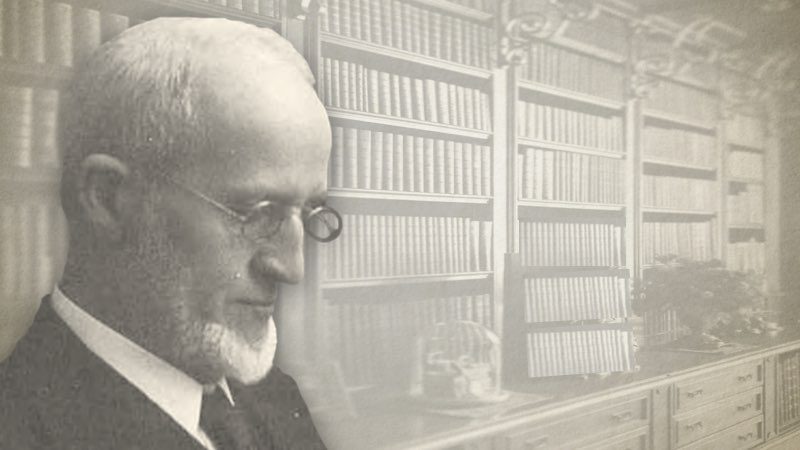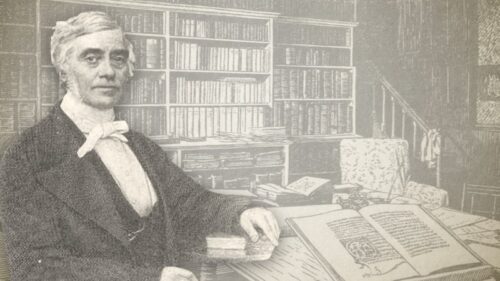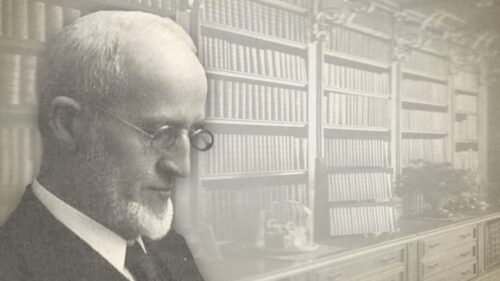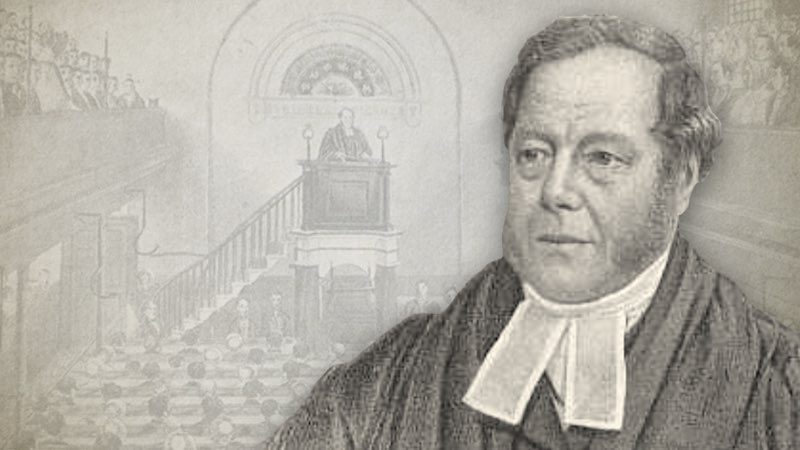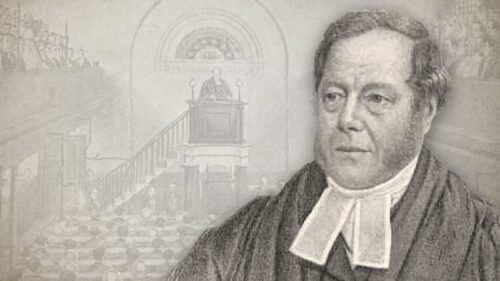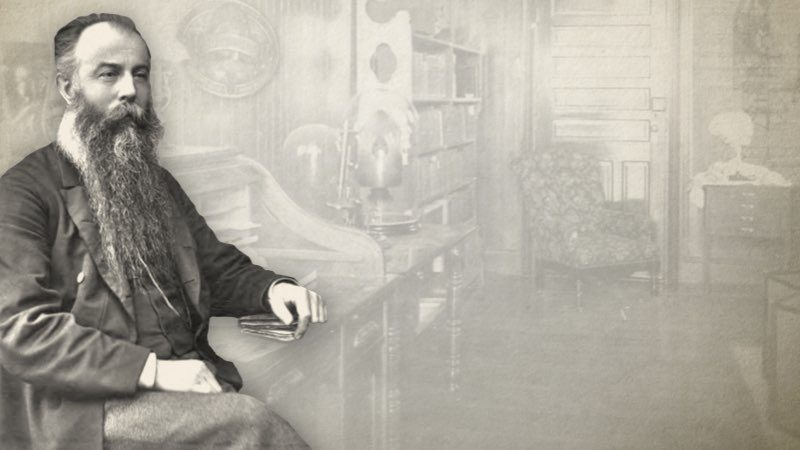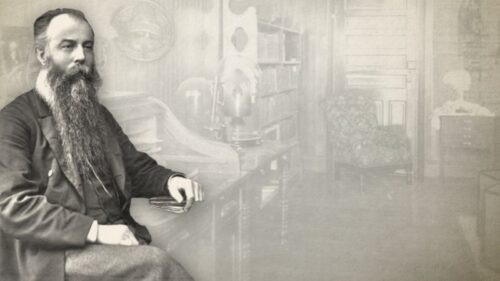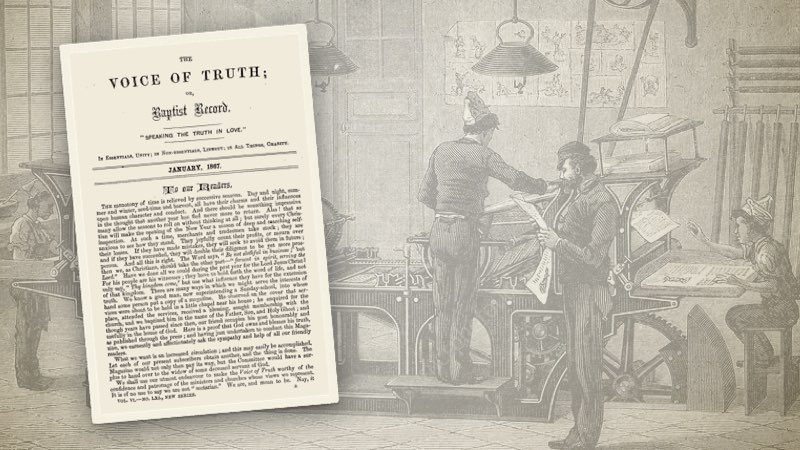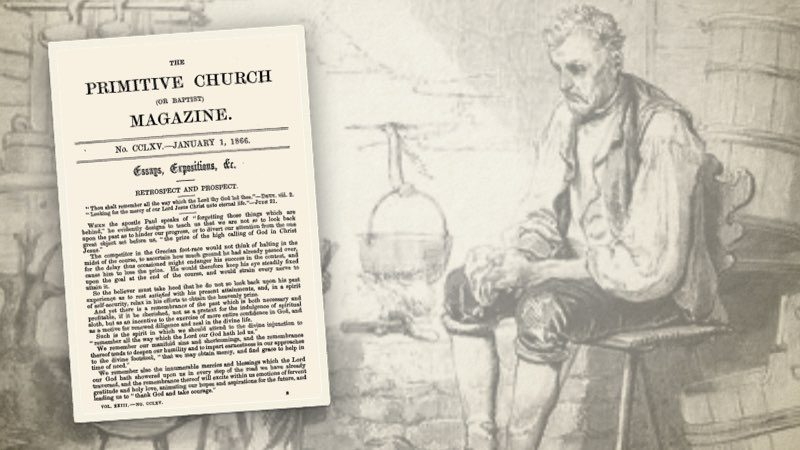-
Moody And Sankey’s Errors, Versus, The Scriptures Of Truth
Before James Popham was appointed pastor of Galeed Chapel, Brighton (1882), he served seven years as pastor of the church meeting at Shaw Street Chapel, Liverpool. It was at that time he published a pamphlet entitled, “Moody And Sankey’s Errors, Versus, The Scriptures Of Truth.” Dwight L. Moody (1837-1899) was an American Congregational evangelist. Ira D. Sankey (1840-1908) was an American Methodist hymn-writer and soloist. Between the years 1873-1875, these men traveled around the United Kingdom, hosting “evangelistic campaigns”. Sankey attracted the crowds with his singing; Moody “closed the deal” with his “gospel sales pitch”. They held 285 meetings in London alone, with an estimated attendance of two-and-a -half million people. Their message was that of free will works religion, couched in the language of…
-
Letter 4: To Berith—On The Covenant Of Grace
My dear Berith, The conspicuous change which has been effected in you, by the grace of God, affords me peculiar satisfaction, and begets in my mind, an anxiety for the increase and permanency of those pleasures of which you have already tasted; and with this object in view, allow me to lead your attention to the inexhaustible treasure, whence all spiritual blessings are derived; even the COVENANT OF GRACE. “Be ye always mindful of his covenant” is the express command of Jehovah to his people, by his servant David; and if my dear young friend were fully aware of the advantage arising from habitual appropriation of the covenant plentitude, and holy communion with the covenant head, the constant cry of his heart would be “Lord…
-
The Duty Of A Gospel Preacher
On December 13, 1875, St. John’s Green Chapel, Colchester, held special services for the induction of their new pastor, Mr. Brown. Several local pastors formed the ordination council, among which was Mr. John Bunyan McCure. He was appointed to bring the “charge” to Mr. Brown, in preparation for his pastoral duties at the chapel. “I speak a word of exhortation for your patience. Here are we with Mr. Brown just recognized; and it is now my duty to deliver the charge with only a few minutes to do so. In days gone by there was plenty of time allowed for this, but we are living in days when we have to do everything in a hurry; coming to my subject—Mr dear Brother, I speak to…
-
Definitions
“Strict” The label refers to the doctrine of Close(d) Communion. 1. Churches which open the Lord’s Table to all who profess faith in Christ are called Open Communionists. Technically, however, they also observe a restricted Table since they make as a prerequisite one's profession of faith in Christ. 2. Churches which put further restrictions on the Table are called Close(d) Communionists. (1) Close Communionists welcome to the Table those who profess faith in Christ and have been baptized; or, those who profess faith Christ, have been baptized and members of churches belonging to the same faith and order. (2) Closed Communionists welcome to the Table those who are in membership with that particular local church. Although I believe Closed Communion to be aligned with scripture,…
-
Precious Faith
This we have not by nature. So far are we from being capable of faith in Christ, in a state of unregeneracy, that it is altogether contrary to our nature. God created Adam holy, and placed him in the garden of Eden in a state of sinless perfection; but he by disobedience merited the displeasure of Heaven, and being the head of the covenant of works, plunged not only himself, but the whole human race into a state of sin, degradation, misery, and death; and the word of God declares us all to be sinners of the deepest dye—dead in trespasses and sins, and blinded by the god of this world. We are all like sheep gone astray; and so fallen are we, that by…
-
The Nature And Increase Of Faith
Faith is the gift and the operation of God. It comes by the Holy Spirit’s power rising and strengthening the sublimest faculties of the soul, and is really a regeneration—a rebegetting—a revival of life from the dead. Thus the believer is said to be “born of the Spirit,” because it is the Spirit’s office in the covenant of grace to regenerate, and because it is the promise concerning the Spirit to all, “even as many as the Lord our God shall call.” And thus also the Christian is said to be “born, not of blood, nor of the will of the flesh, nor of the will of man, but of God.” When the principle of divine life and light is given to the soul, it…

